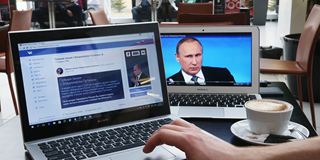With the global proliferation of fake news threatening democratic institutions, "media literacy" training is more important than ever. Gains made by consumers on the front lines of Russia’s propaganda war with Ukraine demonstrate that with practice, it is possible to navigate the fog of a post-truth world.
WASHINGTON, DC – Misinformation and propaganda have been around for as long as mass communication. What has changed is the speed and scale of the delivery. Social media platforms have intensified the spread of pseudoscience and conspiracy theories, threatening democratic institutions in frightening new ways. One only has to Google “Russia” and “Trump” to see the impact of so-called fake news on democracy. But the best way to fight disinformation may be to follow the example set by Ukraine, a country that has faced its own barrage of Russian-funded deceit.

WASHINGTON, DC – Misinformation and propaganda have been around for as long as mass communication. What has changed is the speed and scale of the delivery. Social media platforms have intensified the spread of pseudoscience and conspiracy theories, threatening democratic institutions in frightening new ways. One only has to Google “Russia” and “Trump” to see the impact of so-called fake news on democracy. But the best way to fight disinformation may be to follow the example set by Ukraine, a country that has faced its own barrage of Russian-funded deceit.